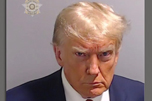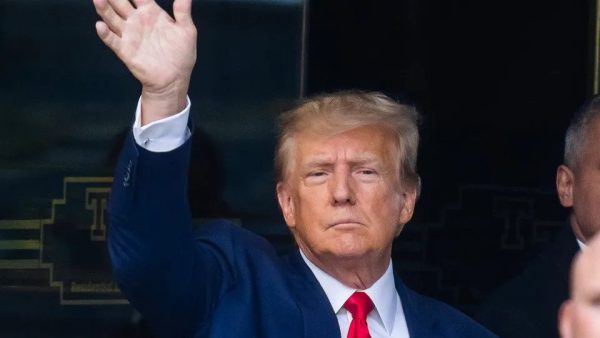The Kurds fight tenaciously for freedom

Kurdistan lies between Syria, Iraq, Turkey, and Iran.
In the center of the Middle East lives a proud people. They have a distinct culture and language, but no country to call their own. At more than 26 million, they are the largest stateless nation in the world. Their homeland is divided between Turkey, Syria, Iraq, and Iran. For years they’ve struggled for independence, and now they just might get it.
They are the Kurds. Ask any American one year ago who the Kurds are, and they would think you took them from a low budget science fiction film. Then came the Islamic State of Iraq and Syria.
Beginning in June, 2014, the Islamic State of Iraq and Syria, commonly known as ISIS, overran a large area of northern Iraq after having already taken over northeastern Syria. Their goal—to establish a caliphate based on an extremely harsh interpretation of Sharia law.
The Islamic State’s blitzkrieg offensive and its atrocities made the terrorist group a household name around the world. The group has massacred those they call “infidels”, including Christians, Yazidis, Shiites, and even Sunnis that disagree with their plan. They became infamous for rape, looting, and murder, including the beheading of many Western hostages.
Whole divisions of the Iraqi army fell apart and retreated, leaving behind their boots and uniforms. Retreating Iraqi soldiers even left behind weapons that were later used by ISIS. To many people, ISIS seemed unstoppable.
ISIS was unstoppable, that is, until they ran into the Kurds. In northern Iraq, the Kurds have their own autonomous province called the Kurdish Regional Government. The KRG is complete with its own prime minister, parliament, police, and even its own military, the US-trained Peshmerga.
The Peshmerga in Iraq stopped the advance of ISIS and defended Iraqi Kurdistan. Not only that, but the Peshmerga even sheltered the Yazidis and Christians that fled from the Islamic State.
In Syria, the Kurds used the chaos of the Syrian civil war as an opportunity to take control of their land. They carved out a de facto state in western Kurdistan called “Rojava,” so named because “rojava” is the Kurdish word for “west.”
The Kurdish cause drew international attention when ISIS besieged the Kurdish-majority city of Kobani in northern Syria. The People’s Protection Units, commonly known as the YPG, held off the Islamic State for more than 5 months before finally breaking the siege and forcing IS to retreat.
The heroism and courage of the Kurds in both Iraq and Syria showed the world just how real the Kurdish struggle for freedom and independence is. The fight against IS made the Kurdish independence struggle more well known, but many in the West are left wondering—who are the Kurds?
The Kurds are an Iranian ethnic group and are the fourth most numerous ethnic group in the Middle East. Their language, Kurdish, is an Iranian language with ties to Persian, Pashto, and Balochi.
The Kurds are mostly Sunni Muslim, though the majority of Kurds are moderate and don’t adhere to jihadism and radical Islam.
At the end of World War I, the Ottoman Empire was partitioned by the Allied powers. The partitions led to the creation of the modern states of Syria, Iraq, Jordan, and Lebanon, but the Kurds were cheated. Instead of gaining independence, Kurdistan was split between Turkey, Iran, Syria, and Iraq.
Over the course of the 20th century, the Kurds rebelled numerous times in Iraq, Turkey, and Syria. In Iraq, they were Saddam Hussein’s favorite target. In Turkey, Kurdish language and culture was banned. It was effectively illegal to be Kurdish in Turkey.
In Turkey, the Kurdistan Workers’ Party, known as the PKK, was founded in 1978. The PKK is listed as a terrorist organization in many countries, including Turkey, Canada, the United States, and Japan.

Led by Abdullah Öcalan, the PKK launched an armed insurgency in southeast Turkey in 1984. Öcalan himself was captured in Nairobi, Kenya, by the CIA and Turkish intelligence in 1999. Even after Öcalan’s capture, fighting raged between the PKK and Turkish government until a ceasefire was negotiated in 2013.
To some extent, the wars in Syria and Iraq can be seen as a sort of “Kurdish War of Independence.” The Kurds are certainly winning their war of national liberation, and rightfully so.
The Kurds have their own unique language and culture. The Kurdish language is distinct from Persian, and has no relation to Turkish and Arabic. The Kurds have their own culture that differs from the Persian, Turkish, and Arab cultures in their respective home countries.
The Kurds are not thinly spread out either, and the majority of the Kurdistan region is solidly populated by Kurds. That backs up Kurdish claims to an independent state.
If Kurdistan were to gain independence, it would likely be one of the most stable countries in the Middle East. In the areas of Iraq and Syria under Kurdish control, the Kurds have shown an ability to both govern and defend their territory from outside threats.
An independent Kurdistan would likely be secular. Unlike groups like ISIS and the al-Nusra Front, the PKK, YPG, and Peshmerga are not motivated by religion. Their sole motivation is the founding of a free and independent Kurdistan. While mostly Sunni Muslim, the majority of Kurds have taken a hardline against jihadism, clearly demonstrated by their fanatical opposition to ISIS.
An independent Kurdistan would likely be democratic. The Kurds have already proven themselves to be tolerant. Kurdish women fight side-by-side with their male countrymen, and women enjoy much more freedom in the KRG and Rojava than women do in internationally recognized states such as Iran, Saudi Arabia, and Qatar. The Kurdish forces have also protected minorities such as Yazidis and Christians.
Not only would a Kurdish state be stable, secular, and democratic, but it the Kurds simply deserve a state. After being cheated out of statehood after WWI, the Kurdish people have endured genocide, oppression, and restrictions on both their language and culture.
Whereas Iraqi soldiers fled like cowards, the Kurds not only confronted ISIS, but stopped them as well. Whereas the United States and its coalition only fight ISIS from the sky, the Kurds fight ISIS tooth and nail on the ground. Husbands and wives, brothers and sisters, sons and daughters have fought and died to stop the advance of the Islamic State.
In the end, the Kurds have sacrificed more than any single group in the fight against the IS. A stateless people, they’ve done more than any recognized state like the United States or France. It would be a disgrace for the international community to simply throw the Kurds under the bus.
The Kurds deserve their own country, and to some extent they have won it. They already control and govern a sizable piece of territory in both Iraq and Syria. When ISIS is finally defeated, if Syria and Iraq wish to reclaim their respective pieces of Kurdistan, they are going to need to fight the Kurds for it. The Iraqi army stood no chance against ISIS, and ISIS was stopped by the Kurds. If Iraq wants to retake Iraqi Kurdistan, then it better prepare for a bloodbath. In terms of human life, it would be far too costly for Iraq to fight the Peshmerga in northern Iraq.
After hundreds of years of foreign rule, the Kurds are finally winning their independence. Kurdistan should be free, and remain so. As the Kurds say, “bijî Kurdistan”, or “free Kurdistan.”

This is my second year writing for The Purple Quill. As a junior, I was the News Editor and I am currently Co-Editor of the print edition of the Quill....


















